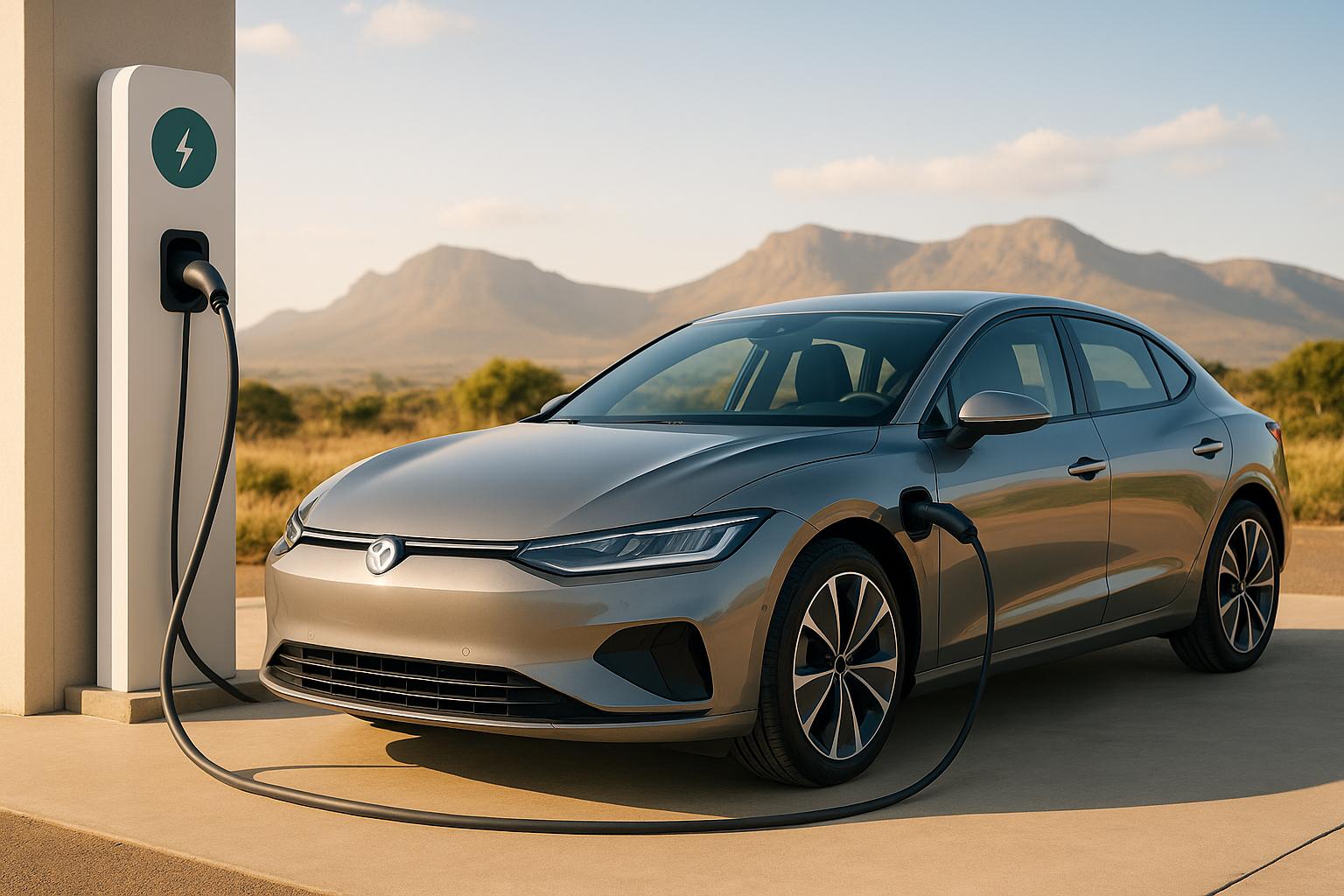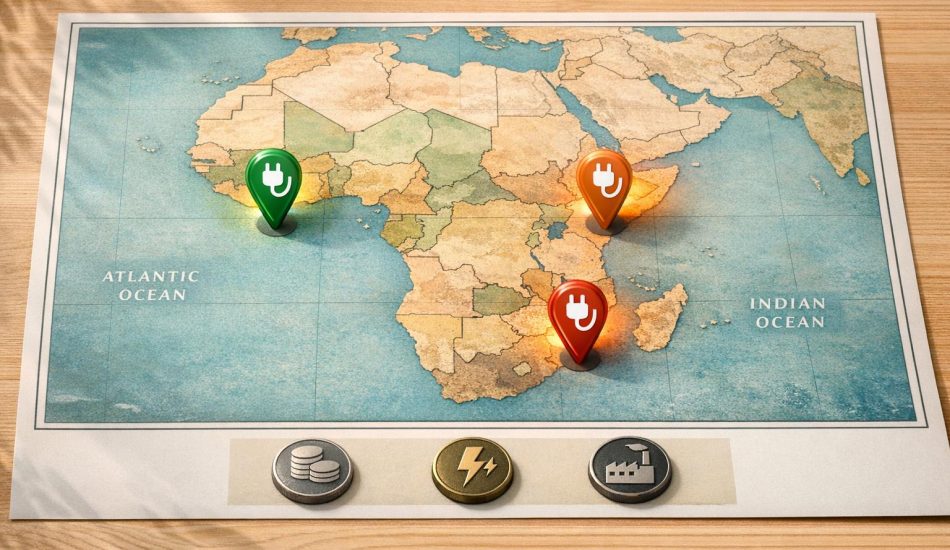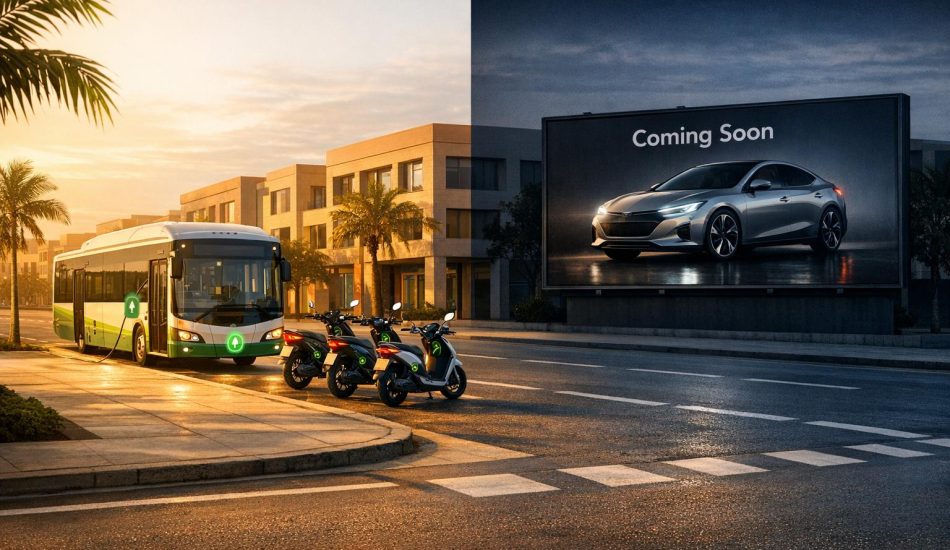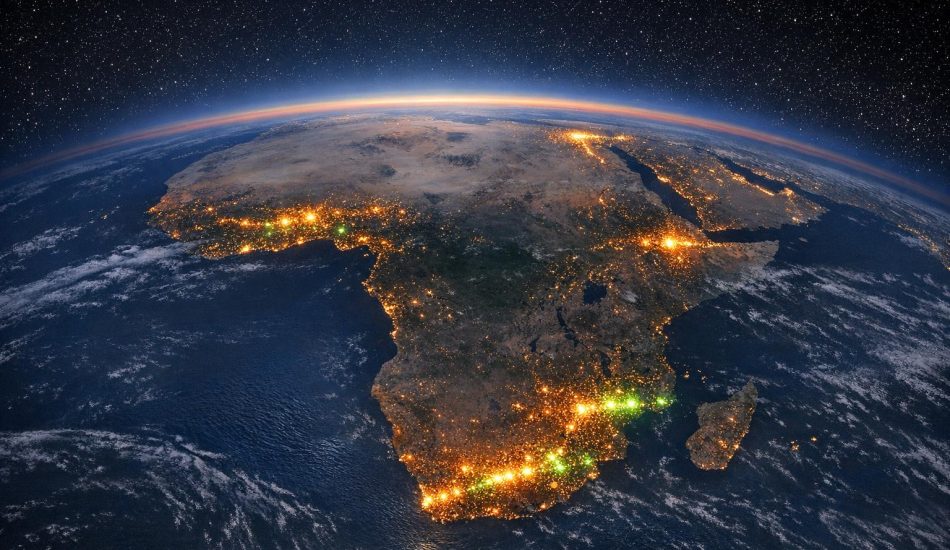
Looking to buy an electric car in South Africa in 2025? Here’s what you need to know:
- EV Options: South Africa now offers a variety of electric cars, including Tesla (Model 3, Model Y), BYD (Atto 3, Seal), Hyundai (Kona Electric, IONIQ), and even local models like ROX. Ranges typically span from 350 km to over 600 km per charge, catering to both city and long-distance drivers.
- Prices: EV costs vary by brand, features, and battery size. Entry-level models are budget-friendly, while premium options offer luxury and extended ranges. Import duties, exchange rates, and government incentives influence pricing.
- Charging: Major cities like Cape Town and Johannesburg have growing charging networks. Home solar systems are becoming popular for energy independence amid load-shedding challenges.
- Buying Process: Platforms like EV24.africa simplify the purchase process, offering financing options and delivery across South Africa and beyond.
- Maintenance: EVs require less upkeep than traditional cars, but battery performance may decline over time. A solid warranty is crucial.
South Africa’s EV market is expanding, offering options for various budgets and needs. Whether you’re commuting in the city or planning long road trips, there’s an EV for you.
Electric Car Models Available in South Africa (2025)
Complete List of EV Models
South Africa’s electric vehicle (EV) market saw an impressive 83% growth in 2024, signaling a shift toward greener transportation options. Today, the country offers a variety of electric cars from well-known global brands, catering to a wide range of preferences and budgets.
Tesla has officially introduced the Model 3 and Model Y, while BYD has gained popularity with models like the Atto 3 and Seal, known for their competitive pricing and advanced features. Hyundai brings trusted engineering to the table with the Kona Electric and the IONIQ series. For those looking for more affordable options, Leapmotor provides budget-friendly choices that are ideal for first-time EV buyers. Locally, ROX offers models assembled in South Africa, benefiting from reduced import duties. Additionally, Chinese brands like Dongfeng and Geely add even more variety to the growing lineup of EVs.
Now, let’s take a closer look at the specifications that make these models stand out.
Specifications and Features
Electric cars available in South Africa boast ranges between 350 km and 480 km, with some models even exceeding 600 km on a single charge. One of the standout features of EVs is their instant torque, delivering a driving experience that’s both smooth and responsive. Many newer models also come equipped with advanced systems, such as automatic route planning that optimizes charging stops for hassle-free journeys.
These features make EVs suitable for both city commutes and longer road trips.
City Driving vs. Long-Distance Travel
For city driving, EVs shine in terms of efficiency and cost savings. Regenerative braking, which recaptures energy during stop-and-go traffic, helps extend the range of the vehicle. Charging overnight at home is convenient and cost-effective, with EVs offering up to 76% lower per-kilometer costs compared to petrol vehicles.
Long-distance travel with an EV, however, requires a bit more planning due to longer recharge times. That said, models with ranges exceeding 600 km are well-suited for intercity trips. Public DC fast chargers, which cost between $0.32 and $0.40 per kWh, provide significant savings compared to refueling with petrol. Plus, South Africa’s expanding charging infrastructure makes extended trips increasingly practical. While entry-level models are ideal for urban use, higher-range EVs can comfortably handle longer journeys.
Electric Cars In South Africa 2024 | Cost of Ownership | Affordability | Sustainability
Electric Car Prices: 2025 Cost Breakdown
Understanding pricing trends is essential for navigating South Africa’s growing electric vehicle (EV) market.
Current EV Prices in South Africa
Electric vehicle prices in South Africa vary widely, depending on factors like brand, features, and battery capacity. For first-time buyers, entry-level models are often the most accessible. Meanwhile, mid-range and premium options cater to those seeking longer ranges, advanced technologies, and luxurious features. Regional market dynamics and economic conditions also play a role in shaping these prices.
What Influences EV Pricing
Several factors contribute to the cost of electric vehicles:
- Import Duties and Taxes: Imported EVs often come with higher costs due to duties and taxes. Locally assembled models may bypass some of these fees, making them more affordable.
- Battery Size and Range: Larger batteries and longer driving ranges typically lead to higher prices.
- Exchange Rate Fluctuations: Since many EVs are imported, changes in the exchange rate can impact final costs.
- Government Incentives: Subsidies or tax breaks can help reduce the effective price for buyers.
Price Comparison Overview: Cost, Range, and Features
Here’s a summary of EV categories, their price ranges, and key features:
| Model Category | Price Range (ZAR) Estimate | Approx. USD Equivalent | Typical Range (km) | Key Features |
|---|---|---|---|---|
| Entry-Level (e.g., compact urban models) | Lower-priced bracket | Budget-friendly | Moderate (~350 km) | Compact design, basic tech for city use |
| Mid-Range (e.g., popular sedans/SUVs) | Mid-priced bracket | Balanced value | Mid-range (~420–480 km) | Modern safety features, connectivity, fast charging |
| Premium (e.g., luxury and high-performance models) | Higher-priced bracket | Premium segment | Extended (~500+ km) | High-performance, luxury interiors, advanced technology |
These estimates provide a general understanding of South Africa’s EV landscape. As technology advances and market conditions shift, it’s always a good idea to check platforms like EV24.africa for up-to-date listings and detailed specifications before making a purchase.
sbb-itb-99e19e3
Delivery and Buying Process for EVs in South Africa
How to Buy an EV: Step-by-Step Process
To start your journey toward owning an electric vehicle, head over to EV24.africa and browse their selection of models from various manufacturers. Once you’ve picked the EV that suits your needs, the next steps are straightforward: submit the required documentation and arrange financing. From there, you’ll review delivery options to complete your purchase as smoothly as possible.
Delivery Services and Shipping
EV24.africa ensures reliable delivery across South Africa and extends its shipping services to 54 African countries. As part of the transaction, you’ll receive detailed delivery quotes and scheduling information, so you’ll know exactly when and how your new electric vehicle will arrive.
Financing and Payment Methods
When it comes to financing, there are flexible options to fit different budgets. For instance, BMW Financial Services provides tailored leasing and financing plans for BMW EVs. These plans might include terms like a 10% deposit with monthly payments spread over 48 months. They also offer solutions for fleet acquisitions, including corporate credit options. To top it off, you can bundle optional insurance – such as gap coverage and cosmetic repair plans – into your financing agreement for added convenience.
What EV Buyers in South Africa Need to Know
Charging Infrastructure
Before buying an electric vehicle (EV) in South Africa, it’s crucial to evaluate the current charging infrastructure. Check the availability of public charging stations in your area and consider whether installing a home charging station is practical for your situation. While the national charging network is expanding, ensuring you have access to reliable charging options is essential. Beyond this, it’s worth factoring in the importance of dependable maintenance services to ensure your EV performs well over the long haul.
Maintenance and After-Sales Support
One of the advantages of EVs is their simplicity. With far fewer moving parts compared to traditional vehicles, EVs experience less wear and tear and don’t require many of the routine maintenance tasks associated with internal combustion engines. However, it’s important to be aware that EV batteries degrade over time, which can impact driving range.
If you’re considering purchasing through platforms like EV24.africa, take a close look at the after-sales support available. Comprehensive service options can make a significant difference in your overall ownership experience.
Government Rules and Incentives
South Africa offers several incentives to encourage EV adoption. These include reduced import duties, VAT relief, and capital allowances for locally assembled EVs. Additionally, the government has allocated 1 billion rand (around $54.27 million) to support new energy vehicle and battery production. Upcoming regulations focused on EV safety, battery recycling, and grid stability are also expected to further boost adoption.
For a more detailed roadmap, South Africa’s 2023 Electric Vehicles White Paper outlines a strategy to transition the automotive industry to include EVs by 2035. This document highlights the country’s commitment to building a sustainable and forward-looking automotive sector.
Key Points for South African EV Buyers in 2025
The electric vehicle (EV) market in South Africa is growing, offering a wide range of options to suit different lifestyles and budgets. From compact city cars to high-end luxury SUVs, there’s something for everyone. Understanding a few key factors can help you make a well-informed decision when buying an EV.
First, let’s talk about costs. EV prices in South Africa can vary significantly depending on the brand, features, and import taxes. It’s not just about the sticker price – think about the total investment, which includes the cost of home charging equipment and financing options.
Charging infrastructure is another important consideration. While the national network is steadily expanding, your daily driving habits and access to reliable charging stations will play a big role in determining which EV works best for you.
Delivery logistics can also impact your buying experience. Timelines, shipping fees, and required documentation may differ depending on your location. For instance, companies like EV24.africa provide delivery services across 54 African countries, so understanding these details can help you avoid delays and unexpected costs.
Maintenance is another area where EVs shine. They generally require less frequent servicing than traditional vehicles. However, battery performance can decline over time, so having a solid warranty is essential to protect your investment.
Ultimately, the right EV for you will depend on factors like your driving habits, access to charging, budget, and long-term plans. Choosing based on your personal needs, rather than following trends, will ensure you make the best decision.
FAQs
What are the advantages of buying an electric vehicle assembled in South Africa?
Choosing a locally assembled electric vehicle (EV) in South Africa offers some clear benefits. For starters, you could take advantage of government perks such as tax breaks and reduced import duties, which make owning an EV more affordable. Plus, by supporting local production, you’re helping to create jobs and strengthen the economy – steps that contribute to building a stronger EV market in the country.
Another advantage is that locally assembled EVs are often designed with South Africa’s specific driving conditions and logistical challenges in mind. This means better availability, faster delivery times, and potentially lower prices. On top of that, it often ensures easier access to parts and services, making maintenance more convenient.
How do government incentives and policies affect the cost and popularity of electric vehicles in South Africa?
Government initiatives and policies are set to play a big role in making electric vehicles (EVs) more affordable and accessible in South Africa. Starting on March 1, 2026, the government will introduce a 150% tax deduction for investments in EV and hydrogen vehicle production. This move is aimed at encouraging local manufacturing, which can significantly lower production costs. On top of that, South Africa has committed 1 billion rand (about $54.3 million) to support local EV and battery production, making it easier for manufacturers to bring down prices.
These efforts don’t just benefit manufacturers – they also make EVs more affordable for consumers by reducing financial hurdles. With local production ramping up and financial incentives in place, the government is creating a strong foundation for wider EV adoption across the country.
What should I keep in mind for long-distance travel with an electric car in South Africa?
When you’re gearing up for a long-distance trip in an electric vehicle across South Africa, the first step is understanding your car’s actual driving range. This range can fluctuate depending on factors like the terrain you’ll cover, the weather conditions, and the load your vehicle is carrying. While many of the latest EV models can manage over 370 miles (600 km) on a single charge, it’s always wise to plan with some margin for safety.
Next, take time to map out your journey with reliable charging stations in mind. Although charging infrastructure is expanding, availability can still vary depending on where you’re traveling. To make things easier, consider using EV-specific route planning tools. These can help you locate charging points along your route and schedule stops that keep your trip efficient and hassle-free.
Lastly, keep your itinerary flexible. Charging times and unexpected delays can crop up, so building in a bit of extra time will help you stay relaxed and on track. With thoughtful preparation, traveling long distances in an EV can be both enjoyable and straightforward!




